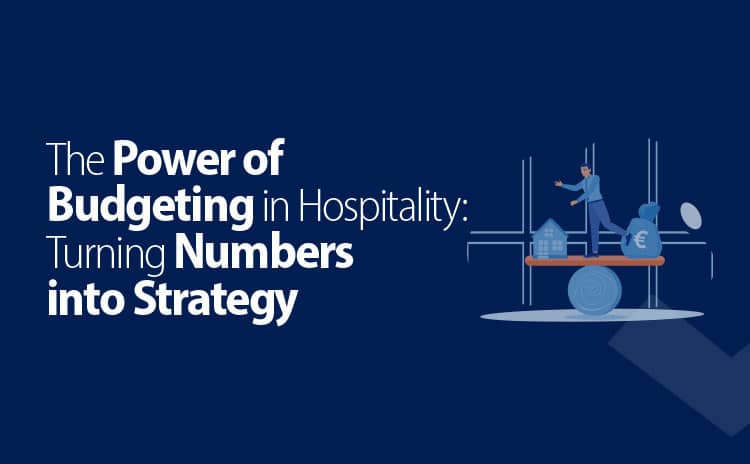The Power of Budgeting in Hospitality: Turning Numbers into Strategy

The Power of Budgeting in Hospitality: Turning Numbers into Strategy
October 1, 2025 | Insights from Christine Schillings, CEO winsed.swiss Romania
In the hospitality industry, budgeting is more than a financial document. It’s a strategic process that helps teams align, plan, and act with purpose. It connects vision with execution, turning intentions into structured plans, and goals into measurable outcomes.
When done right, a hotel budget becomes the operational compass—clearly defining where you’re headed, which resources you need, and how you’ll get there.
1. What does effective budgeting really mean?
At its core, budgeting in hospitality is a smart planning exercise. It’s a conversation between your leadership team, the market, your guests, and your daily operations. It’s not just about numbers—it’s about analysis, forecasting, and decision-making.
Here are the key questions that shape a relevant, high-performing hospitality budget:
- How did we perform this year, and what needs to evolve?
- What’s happening in the local market? Are new competitors entering? Are office buildings, co-working spaces, or event venues opening nearby that may impact demand?
- What is our pricing strategy for the year ahead?
- Are we planning a new menu or F&B concept?
- Which external factors are shifting our cost structure? Energy prices? Labor costs? Taxes? Inflation?
- Do we have planned investments? How will they affect availability and performance? Will they generate additional revenue (e.g., renovated rooms)? Or reduce operational costs (e.g., energy-efficient tech)?
- What sales and marketing strategy supports our revenue goals? Which channels will drive bookings? What campaigns or partnerships can amplify our reach?
These questions build the framework for a hospitality budget that is both grounded and forward-thinking.
2. Start with your commercial strategy
Every revenue target needs a supporting roadmap. That means clearly defined distribution channels, seasonal offers, promotional packages, and a sales and marketing strategy that aligns with business goals from the outset—not as an afterthought.
3. Treat investments as growth drivers
Whether it’s a room renovation, a digital transformation initiative, or a new guest-facing service, every investment should deliver tangible outcomes: increased revenue, reduced costs, or improved brand positioning. Smart planning makes every euro work harder.
4. Watch your cost structure closely
Labor market dynamics, regulatory updates, and cost fluctuations require proactive budgeting. Integrating these variables in real time enables operational flexibility, agility, and smarter decision-making.
5. Your team brings the budget to life
A clear, actionable budget only works when the team understands and supports it. When people are aligned with the plan—and helped shape it—execution becomes natural and shared ownership drives results.
Final thoughts
Budgeting is operational leadership in action. It’s about translating vision into plans, decisions into impact, and numbers into momentum.
At winsed.swiss, we guide hospitality businesses through this process—bringing together industry expertise, financial tools, and strategic clarity. The outcome: teams that perform, plans that hold, and results that drive sustainable growth.
For customized financial and operational consulting in hospitality: cristina.neacsu@winsed.swiss


